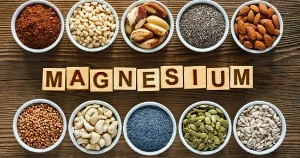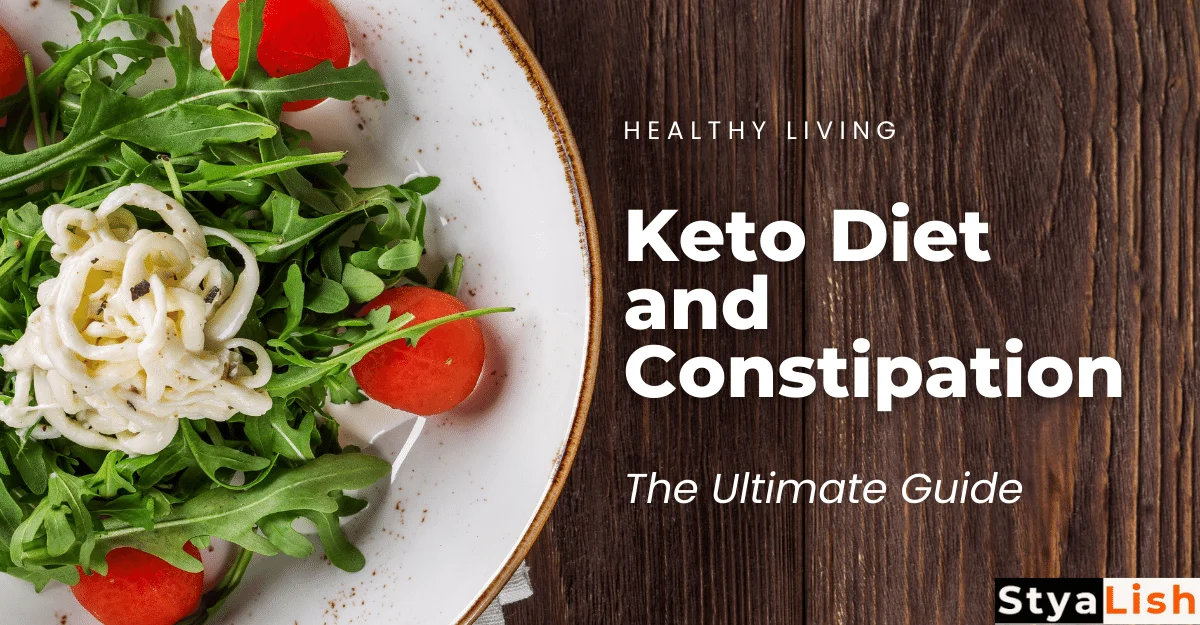A dramatic shift in digestion occurs, and the switch switches from the Standard Diet. It has an emphasis on carbohydrates, to the ketogenic diet has a focus on fats. One of the more typical adverse effects of going keto diet and constipation.
The Keto diet is thought to help Lose weight and improve health. Here, we’ll dispel some common beliefs about keto constipation and provide tried-and-true methods for dealing with the problem.
Moreover, keto diet constipation is often misattributed to a “loss of fiber,” However, it is caused by eliminating high-carb meals, including grains, vegetables, and fruit. In addition, contrary to popular belief, eating too little fiber does not automatically lead to constipation. This article will discuss the causes and home remedies to cure constipation.
Causes of Keto-diet and constipation

Ketogenic Diet is known to help Lose weight and improve health. However, the Keto diet and constipation are interrelated. Constipation is a common complaint among those on the ketogenic diet, although many individuals mistake this for normal.
Because a well-constructed ketogenic diet centers on high-fat keto meats, high-fat fish, and healthy fats, all of which supply the body with the nutrients it requires in readily absorbable forms. This results in far less useless waste being expelled from the body.
However, non-keto meals, such as corn, beans, and many other fiber-laden plant foods, are typically evident on the other end, which reveals a great deal about their usefulness (or lack thereof) for your body.
Overstressing our digestive tracts with excessive fiber can lead to fermentation and increased body temperature. This additional heat can cause damage to organs that are particularly vulnerable to heat, such as the reproductive system.
Fermentation of fiber results in the release of toxic gasses and other chemical by-products. The next part of this post will discuss the link between the Keto diet and constipation.
The Role of Bacteria in Constipation
The Keto diet and constipation are often considered related to each other. The ketogenic diet is associated with losing carb-loving bacteria, which must be replenished with fat-loving bacteria before digestion can return to normal.
Resetting gut bacteria has been proven beneficial, with positive effects including less inflammation and fewer epilepsy symptoms. Nonetheless, constipation can develop during the changing process. Keto yogurt and cultured cottage cheese aid in restoring beneficial flora in the digestive tract. We know now that the Keto diet and constipation are linked.
Constipation and Acid Reflux

Studies show that the Keto diet and constipation are related to each other. Despite its importance, protein can be challenging for the body to break down. Each gram of protein consists of several amino acid chains arranged in a web-like pattern.
Proteins are large molecules that must be broken down by stomach acid. Although this is a natural human ability, it may need to be utilized in those eating a poor diet high in processed foods.
Some people find that a high-protein meat diet has no noticeable effect on their bodies until weeks or months have passed. However, it’s worth sticking with it because there’s mounting evidence that our bodies have been made to consume meat since our caveman ancestors. Know the best comfort food recipes to maintain a healthy lifestyle.
Dehydration

People follow the Keto diet to Lose weight and improve their health. During the early stages of the metabolic state of ketosis, the body releases water that has been stored together with glycogen in the muscle and liver.
Although eliminating excess glycogen is beneficial, the procedure may cause diarrhea and depress electrolytes. As a result, you need to be careful not to become dehydrated throughout the ketogenic diet transition.
During this time, it is essential to maintain a healthy fluid intake, increase salt intake, and take an electrolyte supplement.
Not Enough Vitamins and Minerals

When you add that keto can be more challenging to adapt to if your body already has vitamin deficits, you can see why. For example, your body’s ability to increase bile acid production may be improved if your vitamin A and D levels are adequate.
Vitamin D deficiency affects almost 90 percent of U.S. citizens. In addition, about 80% of COVID patients admitted to the hospital also have low vitamin D levels.
Prevention of Keto Diet-Induced Constipation
Many people use Keto Diet to lose weight and improve their health. You must be wondering how the Keto diet and constipation are related. Some essential tips to prevent Keto-induced Constipation are as follows:
Make sure you drink enough water

As we discussed above, shifting into ketosis is associated with a rapid loss of water as the body uses up its glycogen stores and secretes the water that comes along with it. Therefore, keep your sodium intake high and your water intake low; these measures will help you maintain your current hydration level.
At least 1.5 liters per day and as much as 2.5 liters per day. At-home monitoring of your hydration levels can be as simple as looking at the color of your urine, which should be pale rather than intense.
You may be used to drinking less water every day. Water-based liquids, including coffee, tea, and bone broth, are good additions to your daily water intake. Contrary to common belief, coffee helps you drink less water daily and is a net hydrator.
Stay away from foods that can cause inflammation and allergic reactions

The ketogenic diet, in its broadest sense, reduces inflammation. Most packaged junk food and industrial vegetable oils are eliminated from a ketogenic diet, as are plant foods high in toxins and anti-nutrients.
However, some people may experience inflammation while consuming certain keto-friendly foods. For example, many people experience worsening dairy allergy symptoms after consuming large quantities of keto cheeses because of how frequently they occur.
Constipation can also be brought on by eating nuts while on the ketogenic diet. Though high in fat and protein, they also include many inflammation-inducing omega-6 fatty acids and fiber.
Take care of your electrolytes
Minerals called electrolytes can be found in water and increase their moisturizing properties. Furthermore, electrolytes keep your muscles (including gut muscles) working at peak performance. The main electrolytes include sodium, potassium, and magnesium.
Magnesium

Magnesium’s natural laxative properties are well-known. However, because of soil depletion, most food no longer contains as much magnesium as it formerly did. This suggests that the vast majority of people have a marginal magnesium deficiency.
Take a magnesium supplement, such as magnesium citrate, to increase your daily consumption. An alternative method of ingesting more magnesium is to switch from tap water to natural mineral water.
Sodium

During the early phases of ketosis, your kidneys will expel significantly more salt than usual. This effect diminishes over time, but until then, it is crucial to consume a substantial amount of extra salt.
Use HCL or ox bile

Beet juice and ox gall Natural acids like HCL can aid fat digestion before the body’s bile production has caught up. Also, it’s possible that these aids can stimulate bile synthesis in the body. Improved food absorption and less likelihood of constipation are both benefits of increased bile production.
Be more active

Both chemical and physical processes are necessary for the digestion and absorption of nutrients. Regularity and freedom from constipation can be maintained with surprising success by increasing your activity level.
The muscles and tendons that span your digestive tract can be tightened with at least five minutes of walking or yoga after a meal, resulting in a faster transit time. In addition, we now know a direct relationship between the Keto diet and constipation.
Final Words
Ketogenic Diet is mainly intended to lose weight and improve health. However, constipation may be brought on by overeating fiber. Stopping or reducing dietary fiber intake lowers constipation. Contrary to popular perception, constipation can be induced by increasing fiber in your diet.






Comment